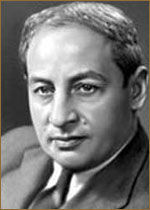On 27 August 1946, a Soviet delegation took off for the Venice Film Festival in Italy. It was headed by Sergey Budayev, director of the All-Union Association Sovexportfilm and included Mikhail Chiaureli, Tatiana Makarova, Veriko Andjaparidze and other national cinema artists. Chapaev, The Vow, The Stone Flower, The Unvanquished, Once there was a girl, Guilty Without Guilt, First of May, 1946, The Defeat of Japan and other films were shown at the festival.
The festival, which was originally founded by fascist dictator Benito Mussolini in 1932, was being held for the first time after a three-year break caused by World War II. The dates were agreed upon with the organizers of the Cannes Film Festival to avoid an overlap. The prizes for the best Italian and best foreign film were merged and the main prize (“Coppa Mussolini” - Mussolini Cup) had lost its name (subsequently the main prizes were called the “Golden Lion”, “The Grand Jury Prize” and “The Volpi Cup”). Count Zorzi and Ottavio Croze negotiated with the French, insisting that the Cannes Festival should be held in the spring, albeit to no avail.
For the first time in the history of the Venice Film Festival, a commission of accredited journalists was formed to judge the films, which included: Francesco Pasinetti, Umberto Barbaro, Gino Visentini, Francesco Callari, Vinicio Marinucci, Nikolai Gorshkov and Pierre Michaut.
Competitive films were shown in the “San Marco” cinema, as the “Lido” cinema centre was requisitioned by Anglo-American troops.
The Soviet film In the sands of Central Asia, directed by Alexander Zguridi, received the prize for the best documentary film.
Source: “Pravda” №204 (10286), 28 August 1946.
























